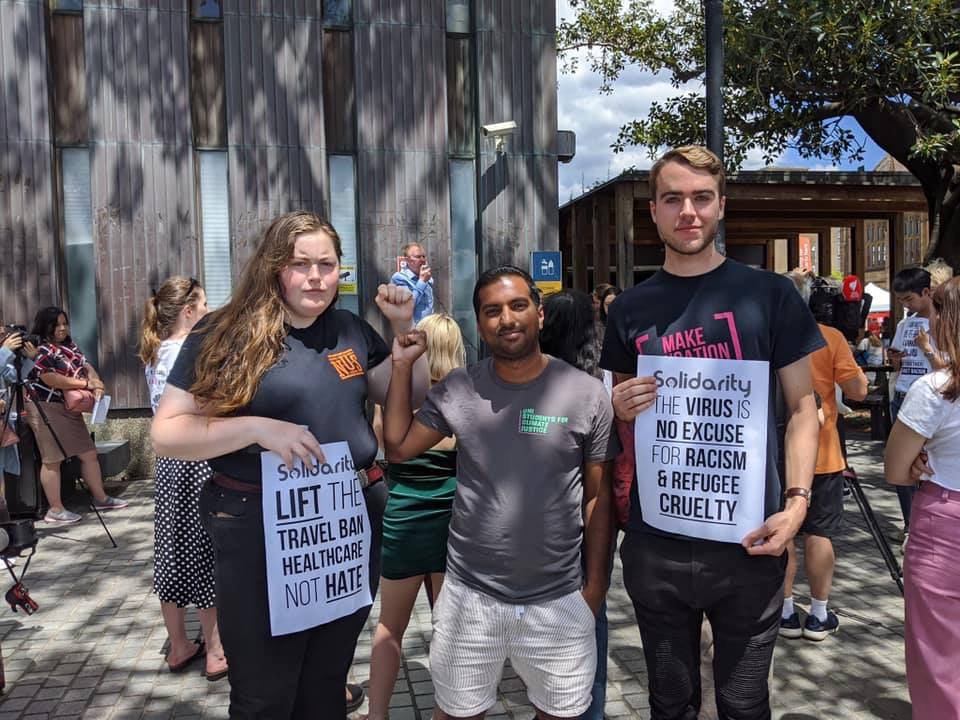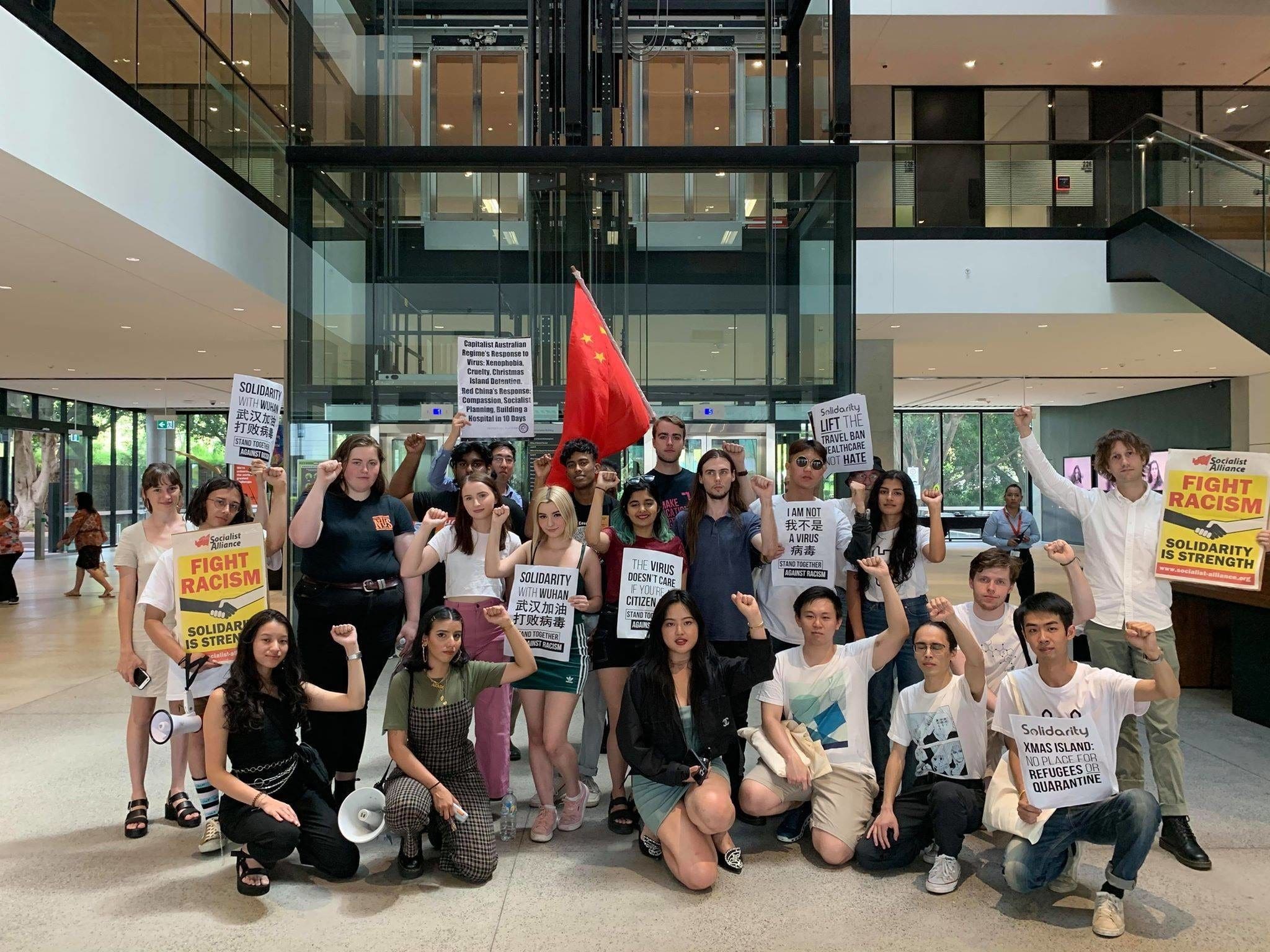Students gathered outside Fisher Library early this afternoon to protest the Australian Government’s China travel ban in response to the coronavirus on the first day of Welcome Week. Organised by the University of Sydney Students’ Representative Council (SRC) the rally called for lifting the ban and a public health response to the situation, with a strong anti-racist message.
Co-General Secretary Abbey Shi chaired the rally, noting that the World Health Organisation (WHO) has said that travel bans are unnecessary measures to deal with the virus. Shi, along with SRC President Liam Donohoe have been leading the student response on the issue, with Shi’s petition opposing the ban signed by over 4000 international students.
All the student speakers at today’s rally situated the Australian Government’s response within a wider context of racism, Sinophobia and the increasing corporatisation of the higher education sector. Co-Women’s Officer Ellie Wilson spoke to Sinophobia as a longstanding tradition, whilst also highlighting past racist incidents on campus, such as a Chinese student being punched on campus last year, and a Sinophobic survey administered at SRC polling booths last year.
In a statement read out by Abbey Shi, Kigen Mera, one of the International Student Officers at the SRC, noted Australia’s inadequate response to the virus, particularly in light of international students paying “40,000 dollars a year”. He also compared Australia’s lacklustre response to other countries in the region who were doing more, such as Japan.
National Union of Students (NUS) Ethnocultural Officer Vinil Kumar referenced Angela Davis’ quote, saying that it is “not enough to be non-racist, we must be anti-racist.” He called Australia’s response to the health crisis “brutal authoritarianism” saying that the Government’s response has added “fuel on the fire of already elevated anti-Chinese sentiment.” Kumar also spoke to several demands including, extending the visas on all those affected, making sure that universities do not penalise students academically or financially, as well as providing professional counselling and support services. Further, he spoke to the fact that universities should provide financial assistance for impacted students including help with rent.

Cooper Forsyth from the Campus Refugee Action Collective situated the Government’s travel ban within the wider framework of the Australian border regime, arguing that “it is the same Government which continually stokes the flames of racism.” Forsyth passionately ended his speech with, “fuck ScoMo, lift the ban, open the borders now!”
SRC President Liam Donohoe offered his full solidarity to all those affected by the virus, racism and those displaced by Western governments. He also said that international students are “only seen as a dollar figure” and noted that a lot of Australia’s response is driven by imperialist tensions. In a call to action, Donohoe stressed that students must be consistently fighting for international students’ rights “even when the chips are down, even when there’s not much media.”
Other speakers included New South Wales Secretary of the National Tertiary Education Union (NTEU) Michael Thompson and Erin Chew, the National Convenor of the Australian Asian Alliance. Thompson spoke to the strains the ban will have on the higher education sector, noting how much international students contribute to universities’ revenue. At the end of his speech, Thompson declared “no to racism, no to the market university, no to the university solely for money.”
Chew spoke to the racism that Chinese people have been facing on a daily basis since the ban, including people moving away from Chinese people coughing or sneezing on the train. She pointed out that Australia’s response is inconsistent with previous responses to health issues, such as Mad Cow disease and the common flu. “Are we afraid of the yellow peril?”, she said.
The rally comes after the Morrison government extended the travel ban for an extra week after the initial ban on 1 February. Approximately 14,000 Chinese international students from USyd are impacted by the travel ban in light of being home for the holidays and Lunar New Year. Should the ban continue, it is estimated that the higher education sector, Australia’s third largest export worth $38billion will lose a minimum of $8 billion if Chinese international students are not allowed to return this semester.





